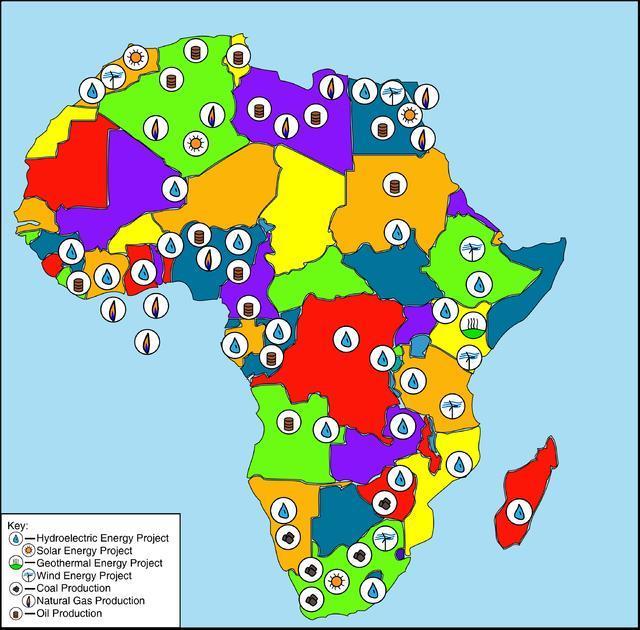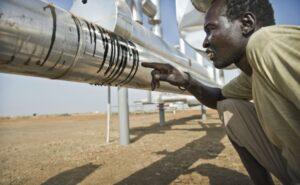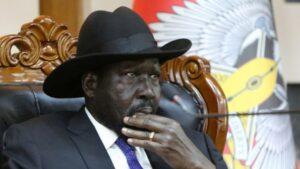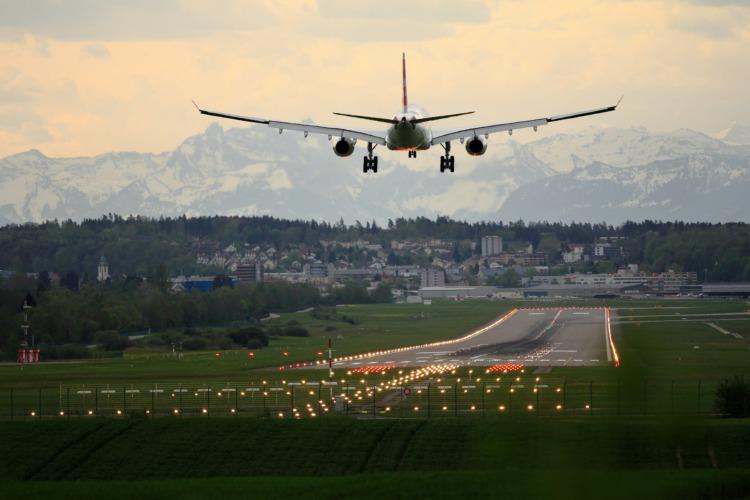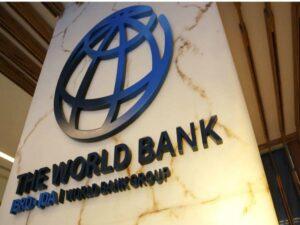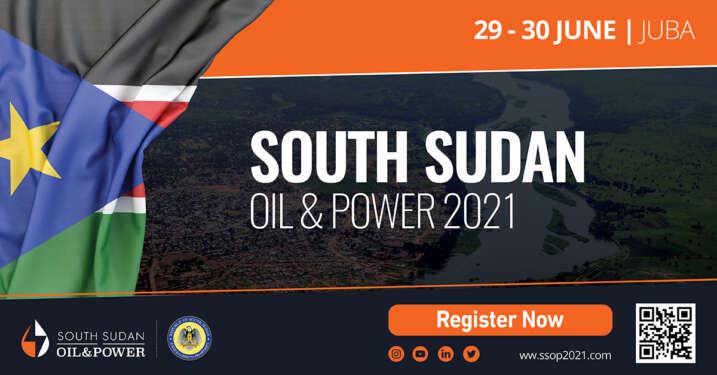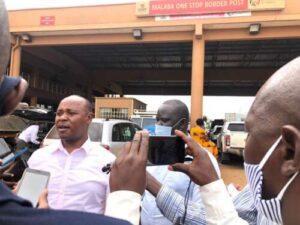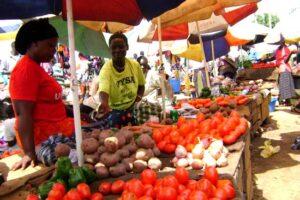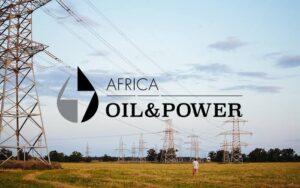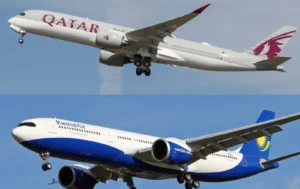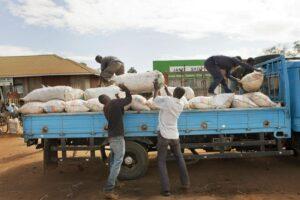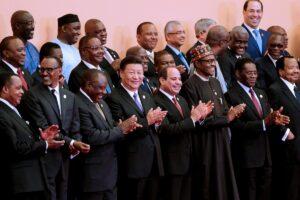- Africa’s new dawn: the rising role of digital and AI in agriculture
- Can Dangote Refinery Transform Africa Energy Ambition
- Gallup Survey: 80 per cent of Kenyan Workers Are Disengaged and Seek New Opportunities
- Madagascar Man Freed from 5KG Tumor After 15-Year Struggle
- How women in Africa are perceived and treated
- Sugar consumption in Kenya to Increase to 1.23 Million Tonnes
- Can Somalia and Turkey Oil deal Bring Change in Somaliland
- Remittances to Kenya dropped to $371.6 million in June, marking a six month low
South Sudan
As Africa’s role in the global economy continues to garner prominence, it’s imperative for the continent to seal the gaping hole in its power supply.
Lack of universal power access remains a major roadblock that has retrogressed industrialization and socio-economic development. Statistics from the World Bank indicate that Africa remains the least electrified region in the world, with 568 million people lacking access to electricity.
The Bretton Woods institution, further notes that the Sub-Saharan Africa’s share of the global population without electricity, jumped to 77 per cent in 2020 from 71 per cent in 2018, whilst most regions saw declines in their share of access deficits. It has become a Hobson’s choice for African governments to prioritize the power sector, which is the epicenter of industrialization, working towards Goal 7 of the UN SDGs; which advocates for universal access to affordable, reliable and modern electricity services.
Currently, Africa’s power is …
- The costs for South Sudan conflicts could reach a staggering range of between $22 billion and $28 billion over the next five years.
- The cost of war shockingly overpowers the new nation’s 2021/2022 fiscal budget of around $2 billion.
- Poverty is ravaging South Sudan. South Sudanese people lack basic essential services, poor housing, land and property issues limit people returning home in large numbers
Numbers have been a better tool in analysing a very complex scenario, and in this case, South Sudan conflicts put it at a disadvantage economically.
According to a 2015 Oxfam report, depending on the intensity of the conflict, the costs for South Sudan conflicts could reach a staggering range of between $22 billion and $28 billion over the next five years.
The cost of war shockingly overpowers the new nation’s 2021/2022 fiscal budget of around $2 billion. These numbers show how wars suck the life out …
- More than $73 million USD was diverted since 2018
- Illicit diversion of State resources has severely undermined the economic rights of citizens
- Oil industry is also dominated by unaccountable oil consortia
Leaders of South Sudan are diverting staggering amounts of money and other wealth from the country’s public coffers and resources, undermining human rights and endangering security.
This is according to the Commission on Human Rights in South Sudan which has found in its latest Conference Room more than $73 million USD was diverted since 2018, including transactions worth almost $39 million USD in a period of less than two months.
The Commission noted that this figure is only a fraction of the overall amount looted.
For instance, President Salva Kiir himself admitted as far back as 2012 that South Sudan’s ruling elites had diverted more than $4 billion USD.
The report also found that illicit diversion of State resources …
The East African Business Council (EABC) has called upon South Sudan to stop charging Visa entry fees on any East African Partner States and embrace the use of National Identity cards as a travelling document across the region.
“As it is now, South Sudan still charges visa fees to EAC citizens from EAC Partner States which do not have a bilateral agreement, with the country. We also urge South Sudan to join Kenya, Uganda and Rwanda to use National IDs as travel documents,” said EABC CEO, Dr. Peter Mutuku Mathuki.
This follows EABC’s visit at the Nimule – Elegu One-Stop Border Post (OSBP) yesterday. EABC in collaboration with the Private Sector Foundation Uganda (PSFU) and the South Sudan Chamber of Commerce held a meeting with the Joint Border Management Committee, deliberating on sustainable solutions on issues affecting the flow of goods and movement of persons at the border post.
Also
…In an unprecedented and rather unexpected move, in October 2020 US President Donald Trump went ahead and erased Sudan out of the US’ proverbial blacklist of countries that harbour terrorists or support terror groups.
President Trump, who is not exactly known for his keen favour for Africa, took to Twitter to announce his decision to remove Sudan from the list of State Sponsors of Terrorism (SST).
He said Sudan had proved itself a willing participant to change and fight against terrorism. He twitted that Sudan’s transitional government has agreed to pay a US$335 million package to US victims of attacks and their relatives.
Also Read: Will South Sudan’s currency devaluation prove strategic or worthless?
The reparations package is to compensate victims and families impacted by a series of terrorist attacks, including the bombing of US embassies in Tanzania and Kenya in 1998, and an attack …
South Africa which is currently under serious economic situations has also sustained a rather historic slump in the business confidence index in 34 years according to last year’s data.
According to a report by Bloomberg, the statistics compiled by the South African Chamber of Commerce and Industry (SACCI), showed that the business confidence declined to an average of 92.6 from a two-year high record of 95.5 in 2018, that being the lowest record since 1985.
Delays in policy implementation, deteriorating public finances and power cuts which escalated in December 2019 have been associated are crucial factors that define the fate of investment in South Africa and why the index matters.
South Africa’s treasury 2019 budget review shows that real GDP growth in 2019 was expected to grow slowly to 1.5 per cent, and expected to improve moderately to 2.1 per cent in 2021.
On the other mark, Bloomberg highlighted that …
South Sudan traders and businesses are hoping for intermission in the foreign exchange market after the Bank of South Sudan said it would introduce dollars into the market to protect the local currency.
Since after the payment of several months of salaries in arrears in September, South Sudan pound has been weakening against the dollar.
“The pound has lost value in the past two months due to the impact of the recent payment of salaries,” said Central Bank Governor Dier Tong.
About $115.2 million which is about 31 per cent of the currency in circulation was put into the economy for the payments.
Also Read: AfDB funds South Sudan’s capital city power distribution system
In October, South Sudan’s government secured $400 million financings from the Africa Export-Import Bank to pay the salaries and finance infrastructure projects.
Elijah Wamalwa the managing director and CEO of Co-operative Bank of South Sudan said …
The government of South Sudan has managed to commission a $38 million upgraded power distribution system financed by the African Development Bank (AfDB)to restore reliable electricity supply to Juba’s central business district and boost suburban livelihoods.
South Sudan has been recorded as the nation that had worst electricity access in the world, as the Africa Oil and Power report shows that, the power supply stands at just 1 per cent of the population.
The funding that was commissioned on 21st November comes to the rescue of the country that had a devastating conflict, crippling most of its economic systems.
According to the African Development Bank, the Juba Power Distribution System Rehabilitation and Expansion Project is the first in a series of major energy sector interventions by the Bank to improve livelihoods and build resilience in South Sudan. As its counterpart contribution, the government provided land for the construction of five …
Egypt and South Sudan signed a Memorandum of Understanding in regard to cooperation in the field of downstream oil and gas, during the South Sudan Oil & Power (SSOP) 2019 Conference.
South Sudan will launch its first-ever licensing agreement in the first quarter of 2020 in regard to the 13 blocks onshore which will be open for tender.
As a testimony to the country’s growing attractiveness as an investment destination, the country hosted delegations and officials from Kenya, Ethiopia, Egypt, Somalia, Norway, United States and South Africa to discuss oil and future oil investments.
The Minister of Petroleum of South Sudan, Daniel Awow Chuang, expressed the country’s vision in the oil and gas sector which is experiencing increased production numbers.
“The oil production in South Sudan has reached 178 000 barrels per day. We hope to reach 250 000 barrels per day in the near future. …





